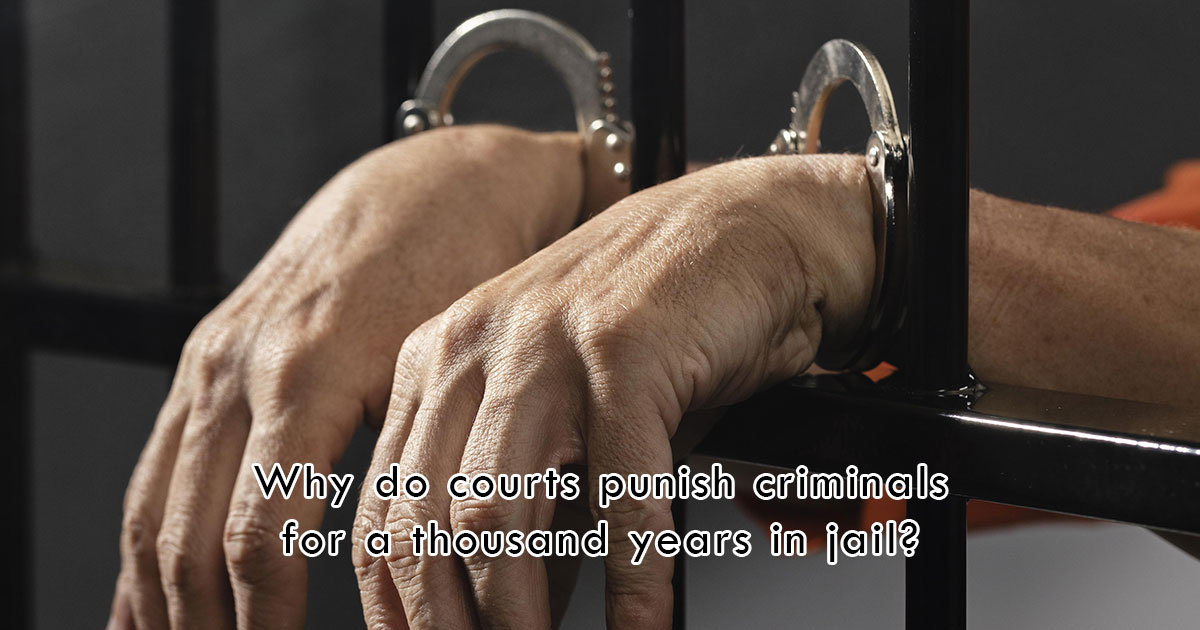In the United States, the legal system occasionally imposes extraordinarily long prison sentences, such as 1000 years or more. This practice raises questions about its rationale, legal foundations, and societal implications. This article delves into why courts may choose such lengthy sentences and the mechanisms underpinning this aspect of penal law.
Legal Basis for Extended Sentences
The imposition of extremely long sentences, including those spanning hundreds or even thousands of years, is primarily grounded in the U.S. legal principle of proportionality and specific aggravating factors. According to the U.S. Supreme Court, a sentence must be proportional to the gravity of the crime committed to uphold the Eighth Amendment’s prohibition against cruel and unusual punishments.
Sections of Penal Code:
- 18 U.S.C. § 3559(c): This section mandates life imprisonment for certain “career criminals” convicted of a third felony offense, which can be interpreted by courts to impose maximum consecutive sentences for each charge.
- 18 U.S.C. § 3571: Provides for substantial fines and imprisonment as penalties for federal offenses, allowing courts to assign consecutive sentences for multiple counts.
Rationale Behind 1000-Year Sentences
The rationale for imposing sentences that far exceed the human lifespan includes several key objectives:
- Retribution: Ensuring that the punishment reflects the severity and heinous nature of the crime.
- Deterrence: To deter the individual offender, as well as others, from committing similar offenses.
- Incapacitation: Permanently removing dangerous offenders from society to prevent further criminal activity.
- Public Safety: Communicating to the public that serious crimes will face correspondingly severe punishments.
Examples in Practice
Several high-profile cases illustrate the application of 1000-year sentences:
- Case of Terry Nichols: Involved in the Oklahoma City bombing, Nichols received a 161 consecutive life sentences without the possibility of parole, effectively ensuring he will spend his entire life in prison.
- Case of Ariel Castro: Convicted of kidnapping and repeatedly raping three women in Cleveland, Castro was sentenced to life plus 1000 years, a symbolic gesture reflecting the societal repudiation of his crimes.
Criticisms and Controversies
Critics argue that such lengthy sentences are inherently futile and serve no practical purpose beyond a certain point. They contend that after a life sentence is imposed, additional years are merely symbolic and do not enhance public safety or deterrence. Additionally, these sentences may burden the justice system and complicate the legal proceedings in appellate courts.
Conclusion
While the imposition of 1000-year sentences may seem excessive, they serve multiple legal and societal purposes, including retribution, deterrence, incapacitation, and ensuring public safety. These sentences symbolize the legal system’s strong stance against particularly egregious behaviors and act as a stark warning to potential offenders.
References









Leave a Reply